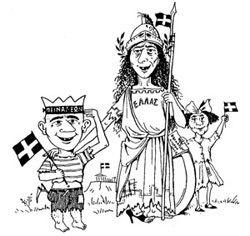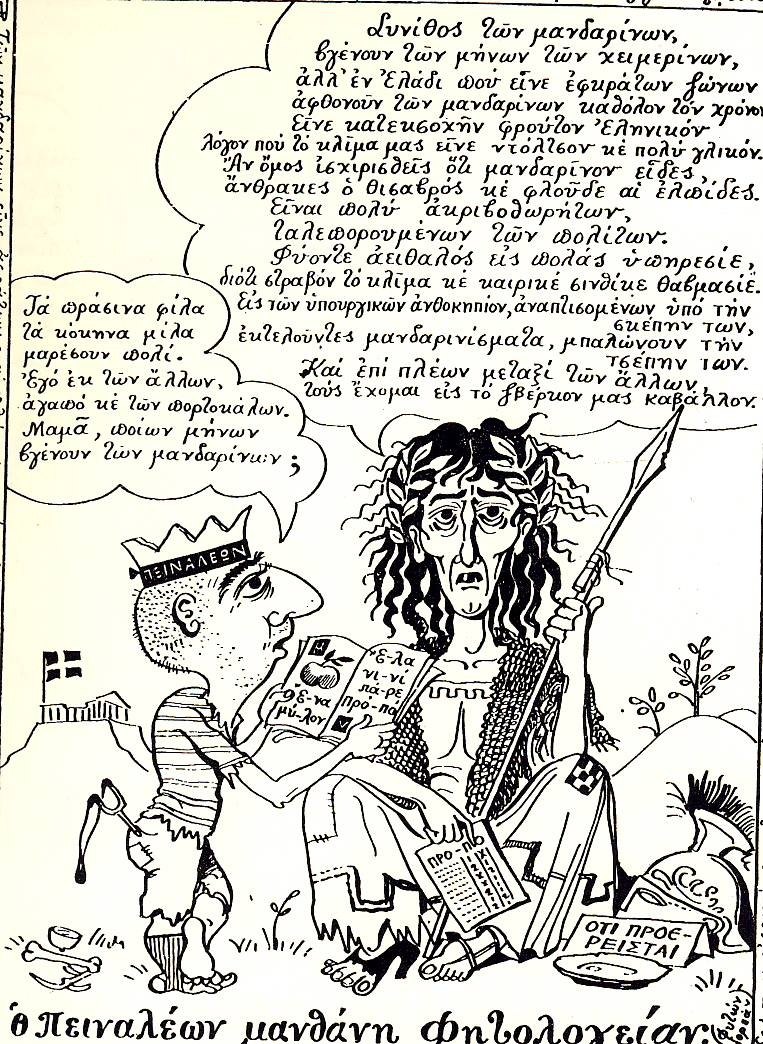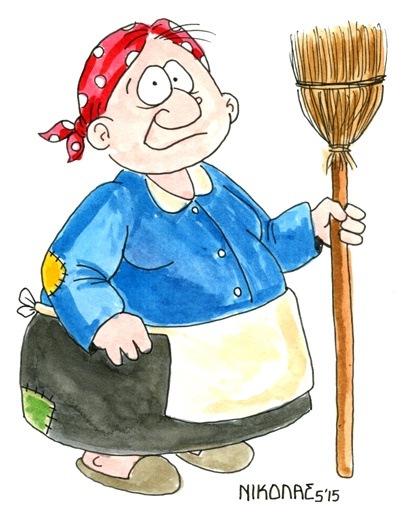Besides the Positive personification of Greece, Athena, there’s also the negative personification of Greece, Ψωροκώσταινα Psorokostena, “Kostas’ Mangy Wife”. In fact the cartoonist Bost (Chrysanthos Mentis Bostantzoglou) in the ’60s drew Psorokostena as a Mangy Athena:


Although the contemporary blog Psorokostena has adopted a homelier figure:

The story of the historical Kostas’ Mangy Wife is one I didn’t know until today, and it’s… well, it’s sad: Ψωροκώσταινα
Panorea Hatzikostas (feminine form of surname Hatzikostena, though the suffix usually attaches to a husband’s given name) was a refugee in Nafplio from Ayvalık, during the Greek Revolutionary War. In 1826, she gave up her last belongings to fund the Greeks in the Third Siege of Missolonghi. Her gesture inspired the admiration of her countrymen.
Which would be a Good Thing, right?
But then, the meaning… evolved. As the Greek Wikipedia puts it,
“Kostas’ Mangy Wife” refers to the Greek State as a poor country, relying more on volunteer contributions and efforts by its citizens, than on the proper and well-thought out organisation and administration of its funds.
“Kostas’ Mangy Wife will pay for it” meaning that the Greek people will be unjustly forced to pay for expenses incurred by the actions and omissions of the governing class.
Erroneously, the expression “Kostas’ Mangy Wife” is used to describe a poor country, with no sources of revenue, doomed to eternal impoverishment. [citation needed]